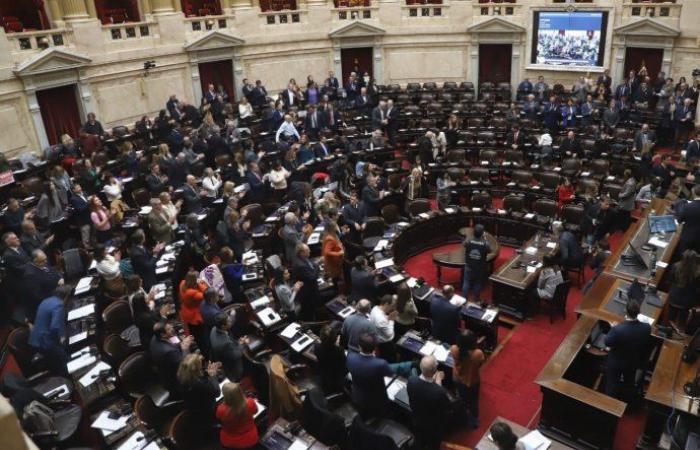“I think the RIGI should have been left as it was. Mainly, the article where it left for all industries, not sectoring them. I think the other issue for us and for the governors is Profits. We believe that without Personal Assets, with some serious change of discharge as had been proposed, makes laundering less effective,” Ritondo explained.
Refering to Retirement Moratorium, he had no contemplations, “it had to end“. For the PRO “it was something that had finished liquidating the pensions. There are already the same amount that are in moratorium as those who paid 30 years,” he explained without clarifying what will happen to those people who cannot raise that amount of contributions.
Beyond what we talked about today with Francos, the negotiations are just beginning. “Today things were not defined,” Ritondo clarified. According to what he said about the meeting they had with Francos, the Chief of Staff will have other meetings next week with other blocks of deputies, then the next week there would be an opinion and, if everything goes well, The last Thursday in June would be voted on the premises.
The paths that the Bases law in Deputies can follow
Chamber of Deputies
Ignacio Petunchi
Full approval
The full approval in the Chamber of Deputies on the modifications made in the Senate would be the simplest scenario: all changes made in the upper house are accepted by a simple majority (half plus one legislator). Then, President Javier Milei must approve and promulgate the law for it to come into effect.
Partial approval
The deputies have the power to partially approve the modifications. That is, in this case you must vote about each of the particularities touched up by the senatorswho restructured the law both in the debate in committees and in the parliamentary discussion.
According to article 81 of the National Constitution, “if the project is subject to additions or corrections by the reviewing Chamber, the result of the vote must be indicated in order to establish if such additions or corrections were made by absolute majority of those present or by two thirds of those present”.
Rejection and return to the original text
Article 81 also indicates that “the House of origin may, by an absolute majority of those present, approve the project with the additions or corrections introduced.” or insist on the original wordingunless the additions or corrections have been made by the reviser by two-thirds of those present.”
So, deputies may reject the modifications and insist again on the original text if the rejection of the modifications is achieved through an absolute majority.
Veto
Once the bill is approved with total, partial modifications or with the return of the original text, the President will have two paths: the veto, a power that belongs to him as Head of State, or the promulgation of the law.
The veto can be partial or total. In this case, President Javier Milei could veto those modifications that are not to his liking and promulgate the part that was not vetoed. The decision to reject some changes would bring about a new parliamentary discussion: the project would return to the House of origin.
Base Law: What happens to the articles discarded in the Senate?
The first paragraph of the constitutional text states that “no bill completely rejected by one of the Chambers may be repeated in the sessions of that year.” The first thing to determine is whether any chapter pruned by the Senate is considered “discarded.” In that logic, Nor could Deputies – upon the return of the Law – discard some of the sections that were “added or amended” by the Senate review.
And the articles that were rejected yesterday, are they considered rejected? For the Constitution, yes. Nothing would prevent an attempt to force an interpretation that does not record many precedents in order to return to the original text. Like everything in Argentina, it could be judicialized if progress is made in this direction. There is a point that is based on logic: if it cannot be approved in the Senate – as a reviewing chamber – it could not be imposed again in the original chamber because this would imply sanctioning a law with the approval of only one Chamber. The axis of this issue is the restitution of the fourth category of Profits and the rejection of the modifications in Personal Assets within the fiscal package, the surprise of the early morning.







